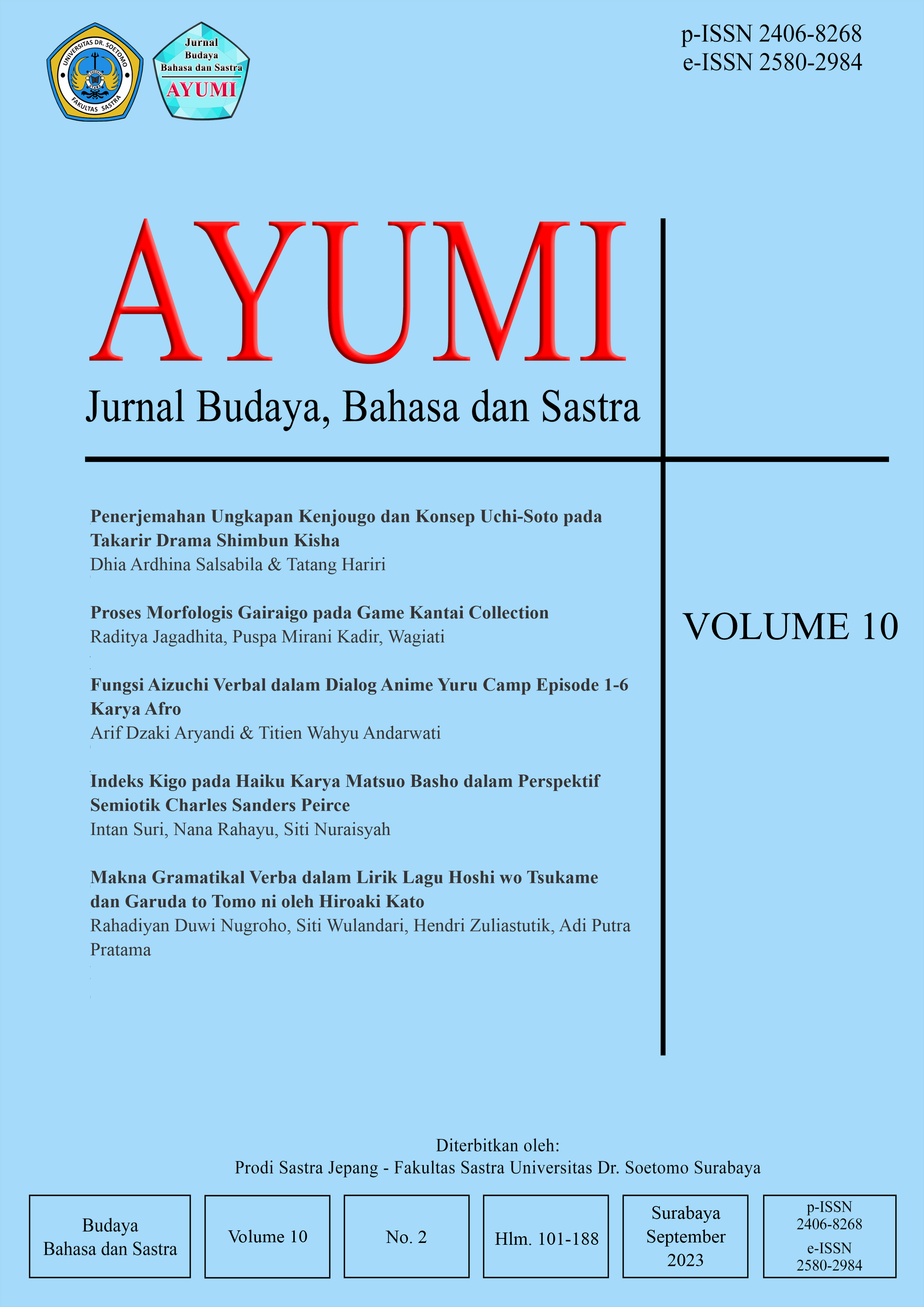Penerjemahan Ungkapan Kenjougo dan Konsep Uchi-Soto pada Takarir Drama Shimbun Kisha
 Abstract views: 143
,
Abstract views: 143
,
 PDF 101-121 (Bahasa Indonesia) downloads: 206
PDF 101-121 (Bahasa Indonesia) downloads: 206
Abstract
This study aims to analyze the relationship between the honorific expressions of kenjougo with the uchi-soto concept and the form of subtitle translation in the Shimbun Kisha drama (The Journalist) in 2022. This study uses a qualitative and descriptive method with the honorific theory of kenjougo proposed by Iori (2001). The data sources used in this study were taken from oral and written data contained of kenjougo expressions in the Shimbun Kisha drama episodes 1-4. The data is obtained from Netflix with a duration of 45 to 60 minutes for each episode. The results of the study show that the form of kenjougo expression that appears most often in the Shimbun Kisha drama is a special verb form. Based on the relationship between participants and the concept of uchi-soto, the study results also show that the use of the expression kenjougo tends to be used in the concept of soto. In translation results in Japanese drama subtitles, the concept of uchi-soto are often not being considered by the translator. It can be seen in the use of several pronouns in Indonesian which are usually used in informal situations such as aku, kau, -mu and -ku. In addition, there are several changes in meaning made by translator. This is caused by the translator's lack of understanding of the uchi-soto concept. There are also cultural differences between the Japanese concept of uchi-soto and polite language in Indonesian. Indonesian does not recognize the honorific expression kenjougo so there are differences in perception in the translation process. The analysis of the form of honorific translation illustrates the complexity of the translation process which affects the equivalence of the translation.
Keywords: audiovisual translation; kenjougo; uchi-soto concept.



1.jpg)



















